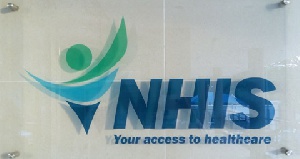The NHIS, which is arguably President Kufour's most important legacy, is in crisis. Indeed, despite its undoubted usefulness, it has been in crisis mode since its early days.
Speaking in June this year, President Akufo-Addo said, "The scheme has been threatened by mismanagement and by huge indebtedness. We are now trying to liquidate systematically the arrears so that the service providers can be encouraged to provide service for NHIS card holders." He promised to have the arrears settled in the next 18 months.
According to other reports, the government has settled 560 million of the 1.2 billion Ghana cedi debt it inherited. The President's remarks followed an admission by the CEO of the NHIA, Dr. Annor that the scheme was on the verge of bankruptcy. The state of the NHIS is even more worrying when one considers that it was supposedly put on a sound footing with an amended law in 2012 amidst the funfair by the then NDC government.
The NHIS currently has about 11 million subscribers, down from a high of 11.3 million. In 2016, 30% of the Ministry of Health's 4.9 billion Ghana cedi budget went into the scheme. And yet the new NPP government inherited a debt of 1.2 billion Ghana cedis. This means that if about 30% more of those eligible were to pay premiums and start using it, it would collapse within months.
Thus while the President should be commended for his determination to pay the debt and save the scheme, paying the debt alone will not save the scheme. If nothing else is done the NHIS will decay while we slide back into "cash- and-carry" in a matter of years.
To be fair, some of the problems of the scheme are beyond it. We spend only 3.6 percent of GDP, which is below the level recommended, on health care.
Furthermore, like other institutions, the NHIS is overwhelmed with corruption, from without and within. As Senior Minister Osafo Marfo pointed out recently, there is a lot of fraud in claims submitted by service providers. What he did not add was that the NHIA itself has been fingered for fraud by the Auditor General repeatedly.
The CEOs of both the Mills and new Akufo-Addo governments blamed their predecessors -- and that was the end of the matter. The need for new ideas and approaches to save NHIS is critical.
A report by Alhassan, Nketiah-Amponsah and Arhinful identified cost escalation, political interference, inadequate technical capacity, inadequate monitoring, spatial distribution of Health facilities and limited community participation as challenges.
Here are some ideas. Let me begin with money.
First, government must give serious consideration to increasing the NHIS levy under VAT, as well as the SSNIT contribution. While on finance, there is a need to get further and better particulars regarding the NHIA operations and the actuarial basis of our costs and billing for healthcare services. Has the near-bankruptcy of NHIS affected staffing, benefits and salaries? Should it? While I understand the calls to tax tobacco and alcohol, I think increasing the pre-existing taxes makes more sense.
Aside taxes, I believe too many health problems that should be paid for by other insurances are being paid for by NHIS. Amongst these are hospitalizations from injuries related to road accidents and workplace injuries.
These should be paid for by vehicular and workplace insurance, for the most part. Furthermore, we must robustly discuss corporate and social responsibility. Should Universities be required by law to offer generous health its employees? Should Ghana Education Service and Ghana Health Service be required to offer teachers and doctors/nurses health insurance? I believe so, as a matter of natural justice.
Then we need to examine the legal foundations of NHIS. Should the NHIA be monitoring and regulating the private health insurance industry who are its competitors? I think not. Should it be determining re-imbursement for private pharmacies? Does it have the technical expertise to drive quality in the health industry?
Finally, we need to discuss these questions devoid of politics. Diseases do not kill NDC or NPP-- they kill people. We should, in my judgment, have a stand-alone health insurance regulatory body.
And we must fight the corruption that is killing NHIS! Let us strengthen NHIS for Ghana.
Opinions of Friday, 29 September 2017
Columnist: Arthur K
Fixing NHIS
Entertainment














